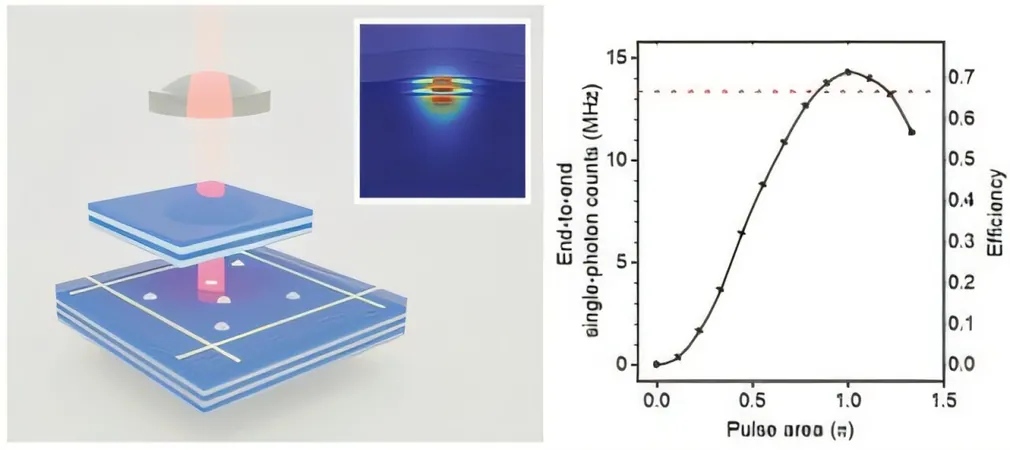
Groundbreaking Study Links Placental Epigenetics to Increased Schizophrenia Risk—What You Need to Know!
2025-03-23
Author: John Tan
Overview
In a fascinating revelation about pregnancy's hidden effects, recent research has shed light on the remarkable role of the placenta in shaping the long-term mental health of a child. As the vital connection between mother and fetus, the placenta has been found to significantly influence fetal development, with its effects echoing into adulthood. Particularly, alterations in the prenatal environment have been connected to serious health conditions, including cardiovascular diseases, metabolic disorders, and neurodevelopmental issues.
Schizophrenia and Fetal Development
For decades, scientists have scrutinized the relationship between fetal development complications and schizophrenia, one of the most complex and debilitating mental illnesses. Now, new insights are emerging about a potential culprit: changes in DNA methylation, which are essentially chemical modifications that can affect gene expression without altering the underlying DNA sequence itself.
Key Findings
A report published in *Nature Communications* has brought to light compelling evidence linking placental DNA methylation with several neuropsychiatric conditions, including bipolar disorder, major depressive disorder, and schizophrenia. Surprisingly, researchers found minimal association between placental DNA methylation and conditions like Attention Deficit Hyperactivity Disorder (ADHD) and Autism Spectrum Disorder (ASD), highlighting a distinct pathway for different mental health issues.
Expert Insights
Dr. Nora Fernandez-Jimenez, a leading figure in the study and an assistant professor at the University of the Basque Country, emphasized the significance of these findings: "These findings reinforce the hypothesis that schizophrenia and other disorders have a neurodevelopmental origin, and that the placenta plays a fundamental role in this process." Dr. Ariadna Cilleros-Portet, the first author of the study, pointed out the incredible implications of identifying prenatal risk factors. "If we could identify risk factors at the prenatal stage, we could intervene before symptoms appear, adjusting treatments or designing personalized preventive strategies,” she explained, alluding to the potential for early intervention in mental health crises.
Conclusion
This groundbreaking research signals a transformative shift in our understanding of complex psychological disorders like schizophrenia. While definitive causes remain elusive, it’s becoming clear that the influences of pregnancy and the prenatal environment could significantly impact a child's mental health trajectory, potentially emerging as challenges many years later. As we continue to unravel the intricate connections between genetics and environmental factors, this study paves the way for developing innovative therapeutic and preventive measures for future generations. The hope is that by understanding the roots of these disorders, we can improve mental health outcomes and enhance the well-being of individuals before any symptoms manifest. Stay tuned as we bring you more insights from ongoing research in this critical field!


 Brasil (PT)
Brasil (PT)
 Canada (EN)
Canada (EN)
 Chile (ES)
Chile (ES)
 Česko (CS)
Česko (CS)
 대한민국 (KO)
대한민국 (KO)
 España (ES)
España (ES)
 France (FR)
France (FR)
 Hong Kong (EN)
Hong Kong (EN)
 Italia (IT)
Italia (IT)
 日本 (JA)
日本 (JA)
 Magyarország (HU)
Magyarország (HU)
 Norge (NO)
Norge (NO)
 Polska (PL)
Polska (PL)
 Schweiz (DE)
Schweiz (DE)
 Singapore (EN)
Singapore (EN)
 Sverige (SV)
Sverige (SV)
 Suomi (FI)
Suomi (FI)
 Türkiye (TR)
Türkiye (TR)
 الإمارات العربية المتحدة (AR)
الإمارات العربية المتحدة (AR)